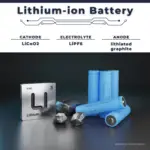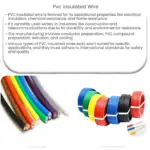What are the Different Types of Electrical Wiring?
Electrical wiring is an essential part of any modern home. It connects the electrical components of your home, allowing you to use your electrical appliances and devices. Different types of electrical wiring are available in the market, and each has its unique characteristics. The most common types of electrical wiring include aluminum, copper, and PVC.
The copper wiring is the most commonly used wiring in most modern homes. It is preferred over aluminum wiring because it is less likely to corrode, which means it is more durable. Aluminum wiring is less common than copper wiring, but it is still used in some homes. PVC wiring is a plastic-coated wiring that is more durable than traditional wiring materials. Its primary use is in homes where the wiring needs to be protected from moisture.
Understanding the Pros and Cons of Each Type
Copper wiring has excellent electrical conductivity, making it ideal for use in homes with high electrical loads. It is also less likely to corrode and has a long lifespan. However, copper wiring is more expensive than aluminum wiring, which makes it less desirable in some applications.
Aluminum wiring is cheaper than copper wiring, and it is still used in some homes. However, aluminum wiring is more likely to corrode, which can cause issues with electrical performance. Additionally, aluminum wiring has a lower electrical conductivity than copper, which can make it less efficient in homes with high electrical loads.
PVC wiring is an excellent option for homes that require additional protection from moisture. The plastic coating on the wiring protects it from moisture and prevents it from corroding. Additionally, PVC wiring is resistant to heat, making it ideal for use in areas with high temperatures. However, PVC wiring is not as efficient as copper wiring, which can make it less desirable in some applications.
How to Choose the Right Wiring for Your Home
Choosing the right wiring for your home depends on several factors, including your electrical needs, budget, and the environment in which the wiring will be installed. If you have high electrical loads in your home, copper wiring may be the best choice. If you are on a tight budget, aluminum wiring may be a better option. And, if you live in an area that is prone to moisture or high temperatures, PVC wiring may be the best choice.
When choosing the right wiring for your home, it is also essential to consider the safety regulations in your area. Different areas have different regulations regarding the use of different types of wiring, and it is essential to comply with these regulations to ensure the safety of your home and its inhabitants.
Common Applications and Uses for Each Type
Copper wiring is the most commonly used wiring in modern homes. It is used in most electrical applications, from lighting to appliances to electronic devices. Aluminum wiring is less common than copper, but it is still used in some applications, such as electrical service entrances and outdoor lighting. PVC wiring is commonly used in areas where moisture is a concern, such as in bathrooms, kitchens, and outdoor applications.
In conclusion, choosing the right wiring for your home is essential for safety and efficiency. Understanding the pros and cons of each type of wiring can help you make an informed decision. Whether you choose copper, aluminum, or PVC wiring, you can rest assured that you are making a sound investment in the safety and functionality of your home.



